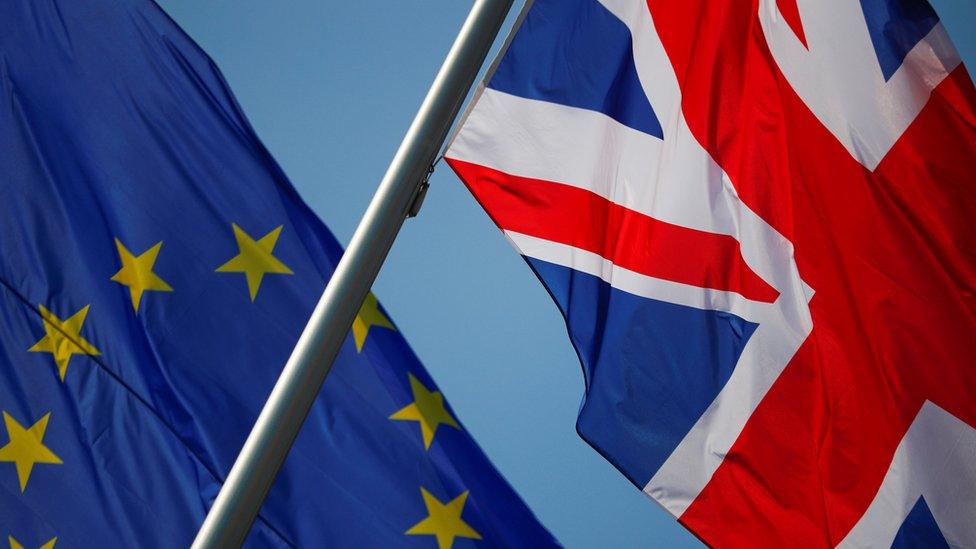NI Protocol: Proposal to use Article 16 over vaccines a disaster - EU aide
- Published
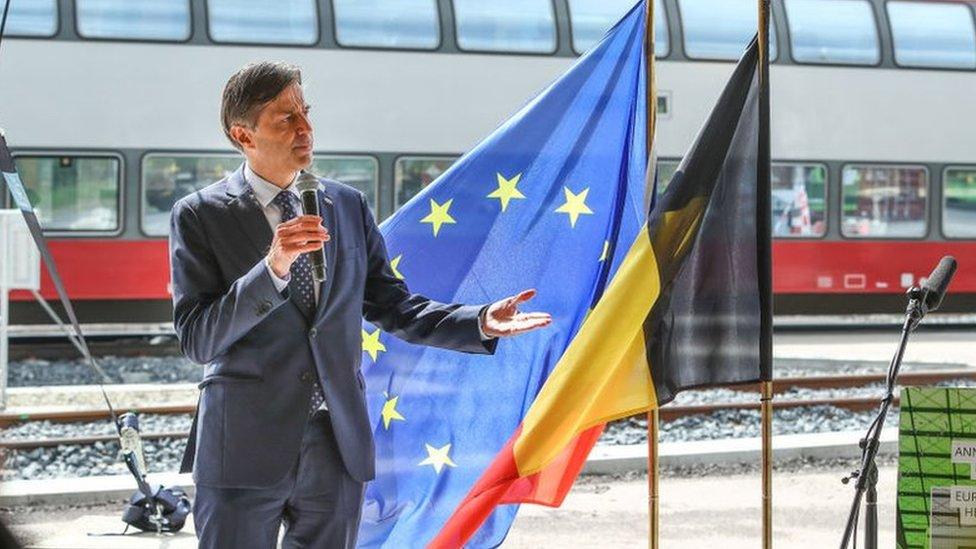
Stefaan De Rynck was senior advisor to the EU's chief Brexit negotiator
A European Commission proposal to suspend part of the Northern Ireland Protocol in a row with the UK over vaccines was a "political disaster", a senior EU figure has said.
Stefaan De Rynck - senior advisor to the EU chief Brexit negotiator - made the statement in a new book.
The proposal to use the Article 16 mechanism came during a row about AstraZeneca Covid vaccine supplies.
The commission proposed using it as part of a package of export controls.
It never implemented the proposal after a backlash from the Irish government and other politicians.
The episode in January 2021 is seen by some commentators as hardening unionists' opposition to the protocol.
The protocol guarantees an open border between the EU and Northern Ireland, with no controls on exported products.
However, Article 16 of the deal allows the EU or UK to suspend any aspects they consider are causing "economic, societal or environmental difficulties".
The commission proposal aimed to stop Northern Ireland being used as a backdoor to get round restrictions on vaccines being sent to GB.
Mr De Rynck describes this as a hypothetical risk and said the proposal on Article 16 was a "wrongheaded political assessment by Brussels of the impact of this move in Northern Irish and Irish politics".
He added that the episode illustrated "the risks and complications the EU faces for its own policy-making by outsourcing the core task of border control to a non-EU member".
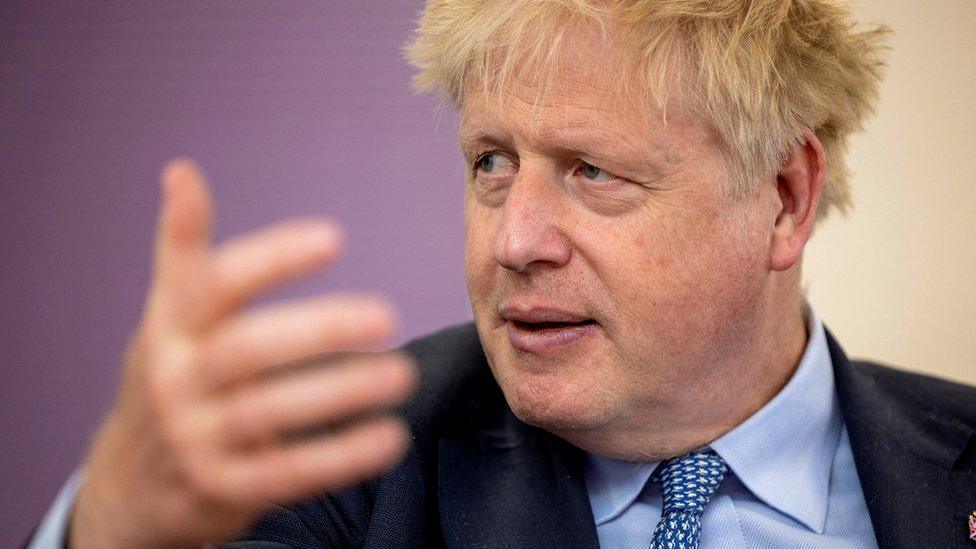
Mr de Rynck casts new light on Boris Johnson's visit to Northern Ireland in November 2019
Mr De Rynck was by the side of the EU chief negotiator, Michel Barnier, for five years between 2016 and 2021.
He has written about his experiences in "Inside the Deal: How the EU got Brexit done".
He casts new light on Boris Johnson's visit to Northern Ireland in November 2019 when the then prime minister told businesses they would not face new paperwork when sending goods to Great Britain.
"If somebody asks you to do that tell them to ring up the prime minister and I will direct them to throw that form in the bin," Mr Johnson said.
These forms in questions are "exit declarations" and Mr De Rynck suggested Mr Johnson must have understood he had agreed to these as he raised them at the very end of the negotiations on Northern Ireland.
"At that last moment, when everyone's mind focused on relaxing and celebrating a deal, Johnson tried to get an exemption for 'West-East declarations', as he called them, the customs exit declarations for goods leaving the EU that apply from Northern Ireland to Great Britain. He urged Juncker to drop them," Mr De Rynck wrote.
The European Commission President Jean Claude Juncker refused to move on the issue.
"Johnson hung up the phone, took two hours to reflect on his options and accepted the terms of the deal in a second call that morning to Juncker, at about 11:00" Mr De Rynck said.
The UK has never implemented these exit declarations , externaland they are the subject of one of several sets of infringement proceedings by the EU.
They form part of the current negotiations between the EU and the UK which are aimed at agreeing how to operate the protocol.
- Published23 January 2023
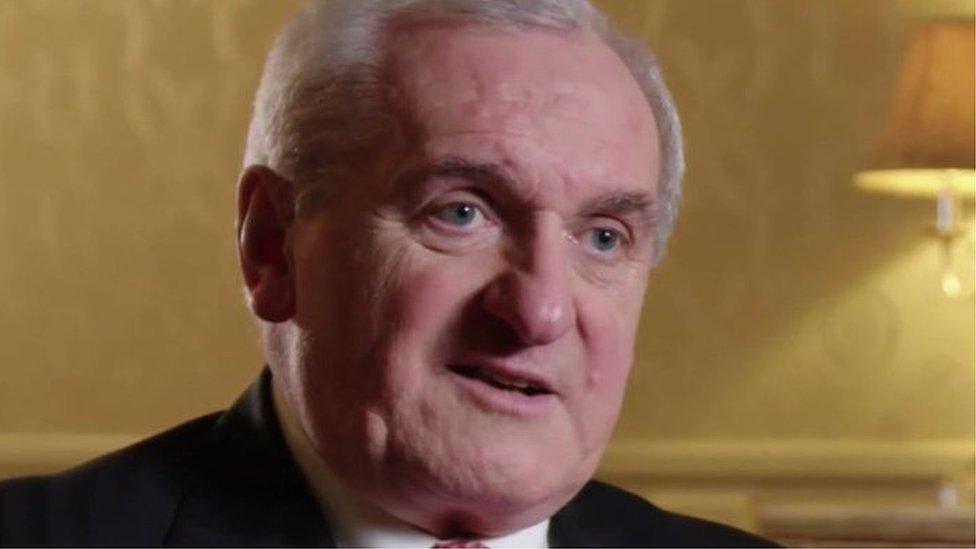
- Published30 January 2021

- Published16 January 2023
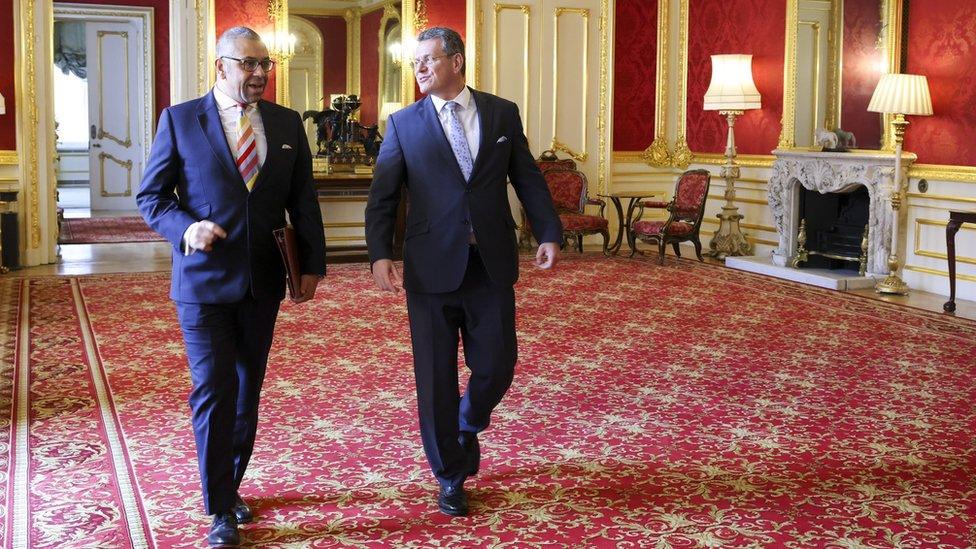
- Published15 July 2021
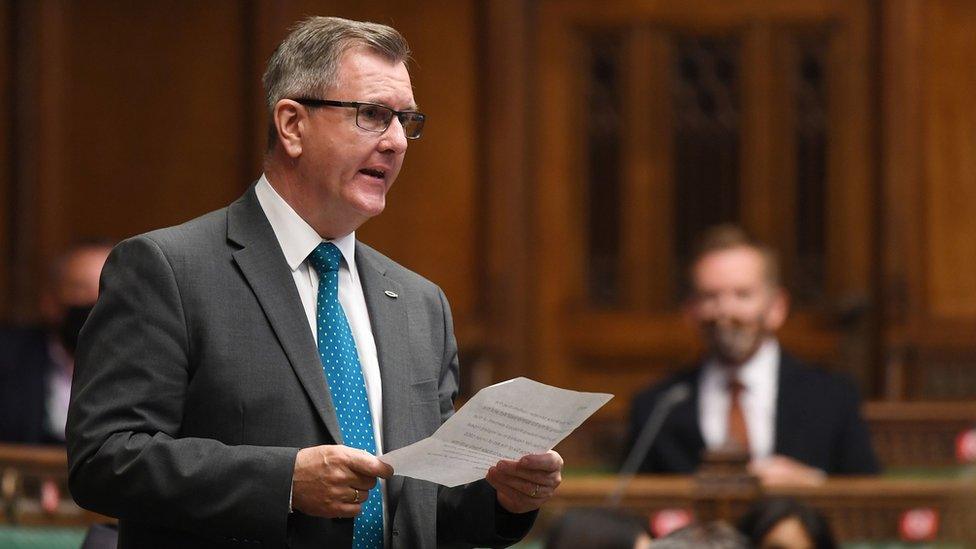
- Published2 February 2024

- Published19 January 2023
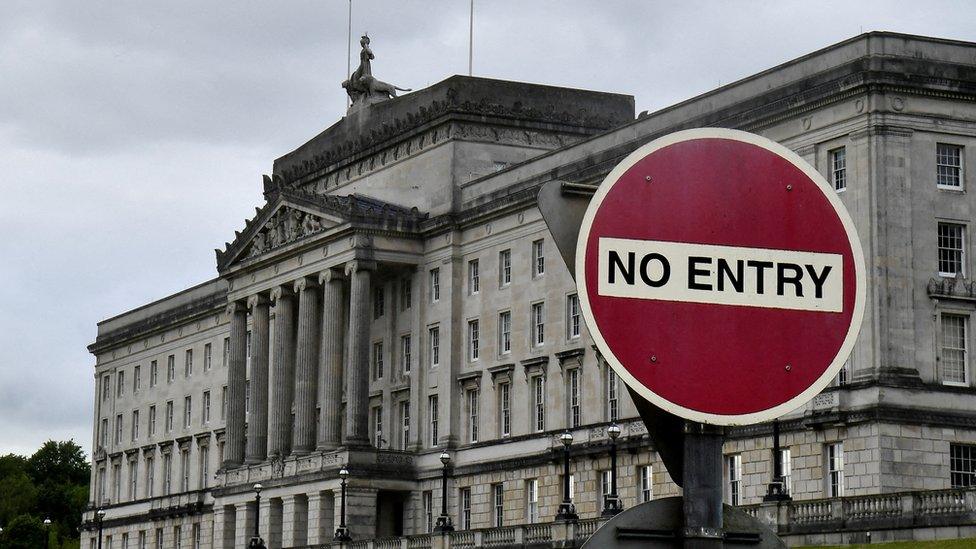
- Published15 January 2023
